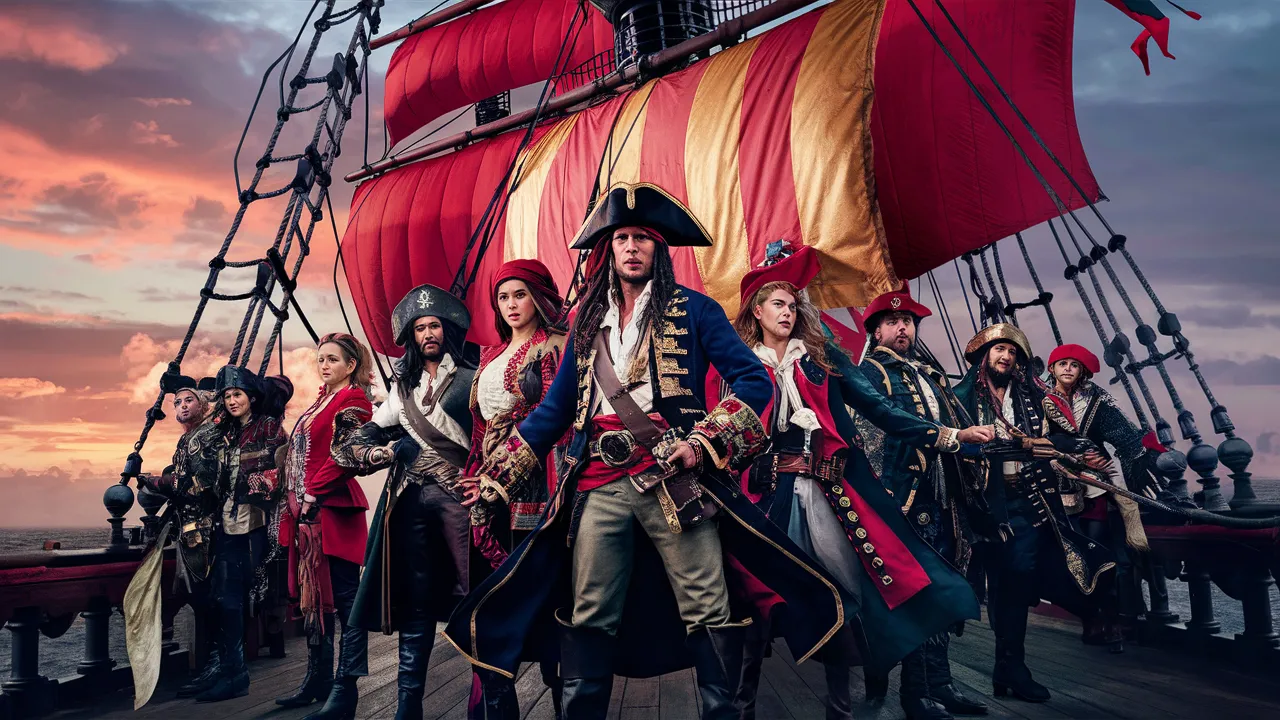Were Caribbean Pirates Heroes or Common Outlaws?

You think you know pirates from the movies - a bunch of rowdy sea dogs getting drunk and hunting for treasure. But what if I told you these rough, murderous outlaws were actually way ahead of their time when it came to racial integration and democracy? Arrrr, keep readin' and all will be revealed!
10. They Were Initially Privateers for European Nations
While they later became notorious pirates, many of these buccaneers began their maritime careers as privateers - essentially legal pirates hired by European nations to attack enemy ships during times of war. This early sanctioned plundering and raiding helped give them the skills and tastes that would lead to their future lives of piracy in the Caribbean.
9. They Operated With Some Organized Rules
Contrary to assumptions of pirates as drunken, chaotic criminals, their ships actually operated with a fairly organized social structure. They had established pirate codes, elected leadership, and rules governing the division of plundered loot. It was almost like a self-governing society afloat on the high seas.
8. They Took Revenge on Colonial Powers
For some pirates, their criminal actions were driven by a rebellious desire to strike back at the oppressive colonial empires. Angered by injustices, they rejected the rules of the European powers and sought violent revenge by plundering their colonies and shipping.
7. But They Ruthlessly Looted Coastal Towns
However, let's not romanticize their actions too much. At their core, these were hardened criminals with no qualms about ruthlessly pillaging coastal towns and cities, heedlessly subjecting innocent civilians to murderous rampages in their greedy quests for riches.
6. They Had Democratically-Elected Leaders
In an interesting paradox, pirate crews had a sort of democratic process for their organized plundering. They elected their own captains through crew votes and established codes and bylaws, including dividing up shares of looted bounties. This quirky mix of outlaw democracy and criminality was quite unique.
5. But Their Punishments Were Harsh and Cruel
That said, while they had democratic processes, the punishments meted out on pirate ships for code violations could be extraordinarily harsh and cruel, even for minor infractions. Whippings of 40 lashes or more were common disciplinary actions taken by these lawless buccaneers.
4. They Represented the First True Racial Integrators
Historians argue that pirate ships were surprisingly progressive in their racial integration for the time period. With no discrimination in recruiting new hands for their outlaw crews, pirate vessels could be integrated with members of various racial backgrounds all working together.
3. Their Romantic Reputations Were Overblown
Thanks to romanticized fictional accounts in books and movies, the reputations of pirates as dashing rebels or lovable antiheroes became overblown over time. In reality, they were simply violent criminals motivated by greed, with their murderous actions and illicit professions being much darker.
2. They Terrified Law-Abiding Maritime Societies
Cutting through the romantic mythology, pirates were essentially criminal gangs that terrified and economically disrupted law-abiding maritime societies just going about legitimate trade and commerce. Their plundering wreaked havoc and panic among honest shippers and merchants.
1. Their Bravery Remains Legendary
While condemning their crimes, one has to credit the sheer audacity and bravery it took for pirates to so brazenly defy the naval powers of their era in outlaw ships. Their individualistic rebelliousness against authority, however misguided, remains the stuff of legend.
